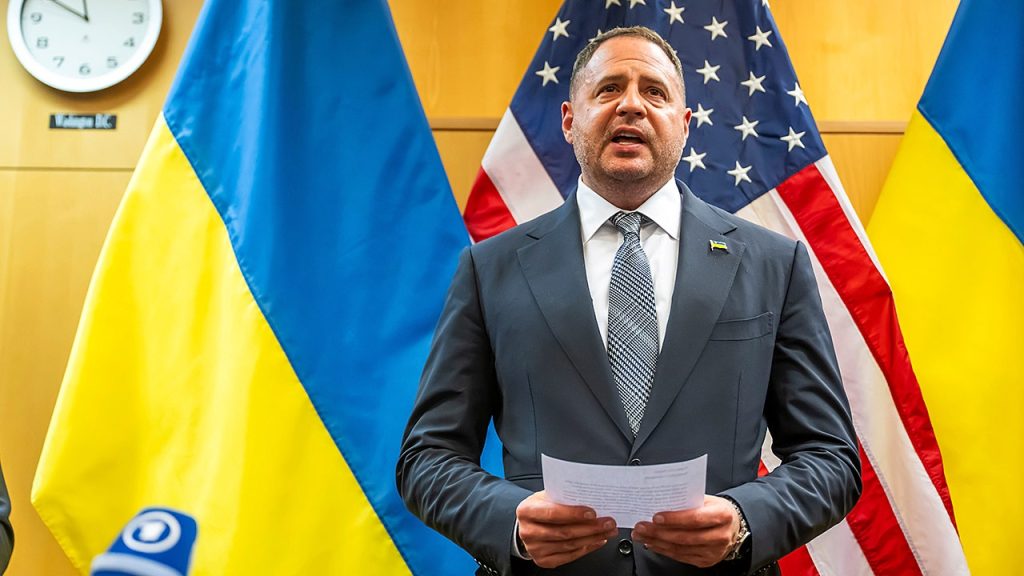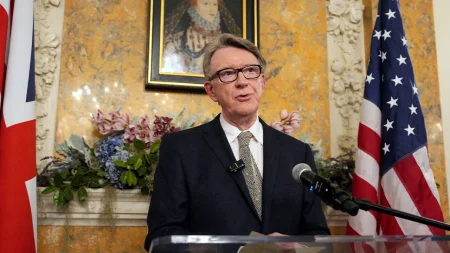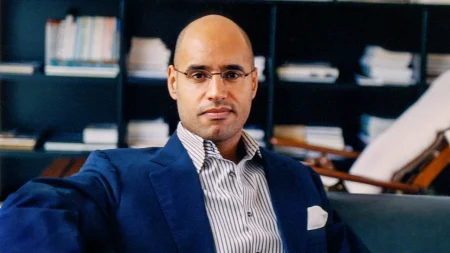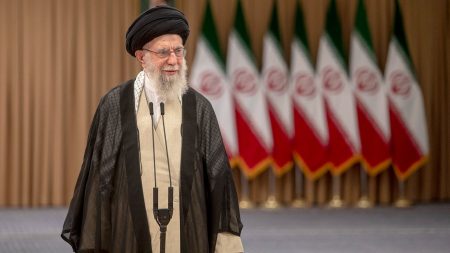Changing of the Guard in Kyiv: Understanding Yermak’s Resignation
In a significant political development from Ukraine, President Volodymyr Zelenskyy has announced the resignation of his chief of staff, Andriy Yermak, who has submitted a formal letter stepping down from his position as head of the presidential office. The announcement comes at a critical juncture in Ukraine’s ongoing struggle to defend its sovereignty while managing complex international relationships. Though details remain limited as this story continues to unfold, the resignation of such a key figure in Zelenskyy’s administration marks a notable shift in Ukraine’s political landscape during wartime.
President Zelenskyy’s brief statement regarding the resignation carried a tone of respect and appreciation for Yermak’s service, particularly highlighting his role in diplomatic negotiations. “I am grateful to Andriy for always presenting the Ukrainian position in the negotiation track exactly as it should be. It has always been a patriotic position,” Zelenskyy remarked. This acknowledgment underscores Yermak’s significant role in representing Ukraine’s interests on the international stage throughout the Russian invasion and the preceding political tensions. As one of Zelenskyy’s most trusted advisors since the president took office, Yermak has been instrumental in shaping Ukraine’s diplomatic approach during extraordinary circumstances.
Interestingly, Zelenskyy made a point of addressing potential speculation head-on, stating, “I want there to be no rumors and speculation.” This preemptive comment suggests awareness of the political sensitivity surrounding leadership changes during wartime and perhaps indicates concerns about how the news might be interpreted both domestically and internationally. While the president did not elaborate on the specific reasons behind Yermak’s departure, his emphasis on transparency suggests an attempt to maintain public confidence during this transition. The timing of such a high-level resignation inevitably raises questions about potential shifts in strategy or internal political dynamics within the administration.
Andriy Yermak has been much more than a typical chief of staff during his tenure. He has served as a key diplomatic representative, often leading Ukraine’s negotiating teams in talks with Russia and other international partners. His influence extended far beyond administrative duties, as he became one of the primary architects of Ukraine’s diplomatic strategy following the full-scale Russian invasion. Yermak played a crucial role in securing international support and military aid, maintaining relationships with key allies, and articulating Ukraine’s position to the global community. His resignation therefore represents the departure of not just an administrator but a significant strategic voice within Zelenskyy’s inner circle.
The broader context of this resignation comes amid Ukraine’s continued struggle to defend against Russian aggression while managing complex diplomatic challenges. Recent months have seen Ukraine facing difficult battlefield situations in eastern regions, ongoing debates about Western aid packages, and discussions about potential paths toward eventual peace negotiations. Leadership changes during such critical periods often reflect adjustments in strategy or approach, though without further details, it remains unclear what specific shifts might follow Yermak’s departure. What is clear is that whoever replaces him will inherit tremendous responsibilities at a pivotal moment in Ukraine’s history.
As this story continues to develop, both Ukrainian citizens and international observers will be watching closely for announcements regarding Yermak’s successor and any potential policy changes that might accompany this transition. The resignation of such a key figure inevitably creates uncertainty, but also potentially opens space for new approaches to Ukraine’s ongoing challenges. President Zelenskyy’s administration now faces the task of ensuring continuity in its diplomatic and strategic efforts while potentially incorporating fresh perspectives. For a nation fighting for its very survival, maintaining stability during leadership transitions represents yet another challenge in an already daunting struggle – one that will require continued resilience from both Ukraine’s leadership and its people.















